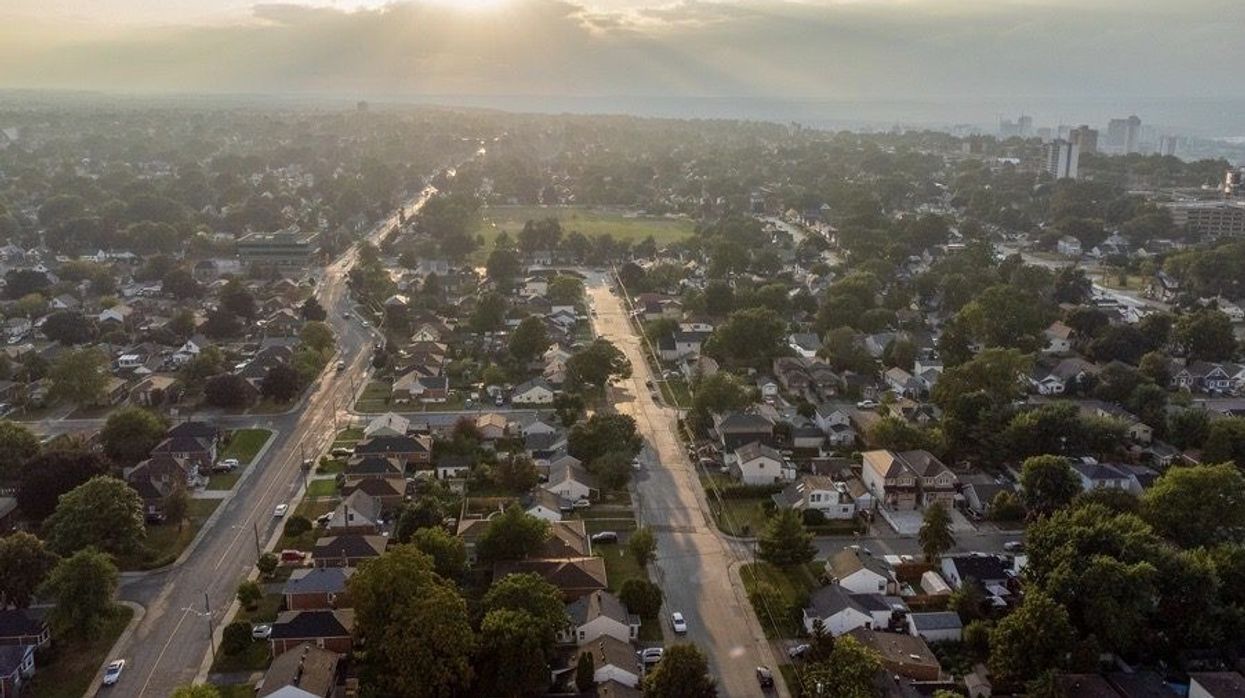Home prices in the Greater Toronto Area are dropping quickly, but does that mean the entire Canadian housing market outlook has turned bearish?
“Housing bears,” Ron Butler called them, “miss the fact that various factors coalesce to keep supporting prices, whether [or not there have been] remarkably low mortgage prices.”
READ: Early Data Shows GTA Housing Prices On “Rapid Decline” in April
The founder of Butler Mortgage added that historically low interest rates have been the biggest factor in housing price inflation over the last eight or so years. As that caused demand to surge and the value of homes to keep increasing, there have been far fewer houses on the resale market because some homebuyers are retaining their primary residences and getting rich off the equity.
“Then there’s the significant growth of immigration, and another factor that has been creeping along for the last four or five years has been house hoarding,” Butler said. “When people move into their larger home, they retain their old home and rent it out, a phenomenon that didn’t exist 10 years ago. People did not have interest in becoming landlords 10, 15 years ago.”
But in the GTA, locales like Whitby, Ajax, Pickering, Milton and Brampton, to name a few, have seen housing prices decline on a monthly basis. Although the latest data has not yet been released, it is believed the trend will continue into May.
“It’s going to continue. Prices in the last 18 months have gone up over 30% in Ontario, so there’s a lot of room for them to go down just to get back to 2020 prices,” Butler said. “The bears aren’t right yet. If a few regions have price reversals for less than a year and they start going back up again, how are the bears right? If the prices in, say, Milton go down 35% and stay that way for two years, the bears were right, particularly if some of these prices go down 40%. They won’t go down that much in Central Toronto but they will go down in some of those odd places like Guelph, where people bid prices up enormously.”
In short, Butler predicts pain, especially as interest rates continue climbing. Moreover, for homeowners who have put a home equity line of credit towards a down payment on another home, a rising prime rate must be disconcerting.
RELATED: As Interest Rates Rise, Are HELOCs Becoming Too Risky?
There are also people who have just bought a home and intend on selling their current home but haven’t yet, and with prices declining, they could be in for a world of hurt, Butler says, citing the Fair Housing Plan, which was implemented by Kathleen Wynne’s government in April 2017 and shocked the housing market. There were countless cases of people who weren’t able to sell their homes for enough money, or who had entered purchase agreements but couldn’t secure the financing, then backed out of said agreements and got sued.
“It’s about to happen again,” Butler said. “We’ve seen a number of situations where people have asked if they can get out of the deal, and we told them that, contractually, it would be very difficult. If they bought a house and they can’t sell their current house, they ask to keep both houses and we explain the difficulty of the expenses. Then they ask how to get out and we explain litigation is almost a failure. The person you bought the house from wins. The seller wins.”
Robert Hogue, Senior Economist at RBC, is not convinced the market is becoming bearish because that would imply it is depressed, which he says isn’t the case amid demand that’s still above the historical average. However, there is no doubt that prices have begun decreasing on a monthly basis and Hogue can see that continuing into 2023, albeit in what he calls a soft landing.
“A soft landing after what we’ve been through would be not a bad outcome,” Hogue said, adding that he doesn’t see any “large-scale issues.”
“It all depends on which side of the equation you are -- if you’re a buyer you probably want to see more and more of a correction, but for a recent owner you don’t want things to cool down too quickly, so a soft landing is not a bad outcome here.”
Housing prices should not increase as quickly as they have, but with high demand and persistent dearths of housing inventory across Canada, valuations kept surging. Establishing equilibrium between supply and demand is the only solution to prevent that from happening again, Hogue says.
“Governments have made many commitments to tackle the supply side to ensure municipalities can process project applications more quickly and efficiently, so in the future when we have bouts of demand, supply can at least respond quickly enough so we don’t get future price spikes,” he said.
“When you look down the road from a demographic perspective, there will be a lot of new immigrants coming to the country and it will sustain and increase pressure on housing stock, and the key will be for the supply to accommodate that increased demand. If not, we might see prices go up again, but if there are fewer obstacles in the future, and if there’s a faster response, we might see a tamer environment.”





















